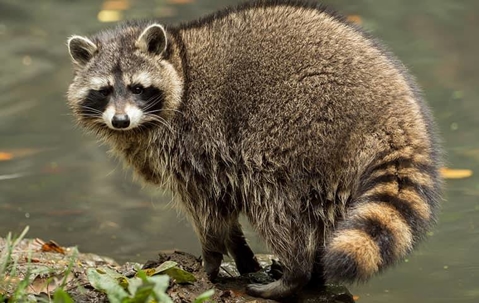Various types of wildlife often plague property owners in this region. From tiny mice to much larger creatures, wildlife can pose health risks and will often create costly property damage.
What is wildlife? Wildlife is a very broad term that refers to any type of creature that naturally exists outdoors. Many animals have become accustomed to living near residential areas, particularly when they can access benefits, including sources of food or water or shelter from the elements. While most types of animals are most active during the spring, summer, and fall, many of these critters become increasingly motivated to move indoors as temperatures cool before the winter.
Property owners that are experiencing these types of problems should consult with a professional wildlife removal company that will safely and effectively mitigate the situation. Many kinds of wildlife are dangerous; therefore, these problems are best left to the experts.
Types Of Problematic Wildlife In Waltham
Among the most common types of wildlife in this region are the various rodent species. Examples include moles, squirrels, opossums, and raccoons. When these pests gain access to the interior of a home, they are often drawn to areas such as attics, basements, crawlspaces, or within interior walls.
Many of these pests are nocturnal, and sometimes homeowners will first detect the presence of wildlife after hearing them rummaging around at night. Often, these pests will go undetected until they begin to proliferate and expand into a full-blown infestation.
The Dangers Wildlife Bring To Waltham Properties
Wildlife is a common source of diseases such as rabies, rat-bite fever, salmonellosis, and a host of other dangerous conditions. These pests will often pass-through garbage, sewers, and other filthy areas that are home to parasites.
As they move indoors, pests may contaminate food, such as dried goods in pantry areas, and leave behind a trail of excrement. Unlike domesticated animals, they may pose further risks of physical harm when defending themselves, such as if a homeowner suddenly encounters them.
The majority of wildlife also can create interior and exterior property damage. For example, rodents have front teeth (incisors) that continually grow and cause them to gnaw on things constantly, which can be a significant concern if it involves the wiring or cabling in your home. Many of these pests can also damage fabrics, paper products, and insulation materials that they use for constructing nests.
In the exterior, many of these creatures dig into gardens or lawns to create underground nests or tunnels. They might also be involved in confrontations with cats, dogs, and other pets.
Are you trying to determine what is wildlife and the best ways of wildlife management? You are strongly encouraged to seek professional assistance with these pest-related problems based on the aforementioned risks.
The Key To Effective Wildlife Control In Waltham
Eliminating food sources is critical to preventing wildlife. Exterior garbage bags, particularly those containing food scraps, should always be placed in durable trash cans with functional lids. Promptly remove any fallen fruits and move birdfeeders away from the area adjacent to the home. Avoid feeding pets in exterior areas such as patios or decks.
Practical Wildlife Prevention Tips For Waltham Properties
Some of the best practices include:
- Move firewood and other debris away from the home that may serve as hiding spots.
- Closely inspect the exterior of the property for any cracks or other openings that might allow entry.
- Keep branches, shrubs, and other vegetation trimmed away from the exterior.
Team Of Wildlife Control Professionals
Assurance Pest Solutions offers professional wildlife removal and wildlife management services. Some of the tools we use include live traps, positive set traps, and a host of exclusionary measures for preventing entry. Contact our office today to schedule a consultation.

